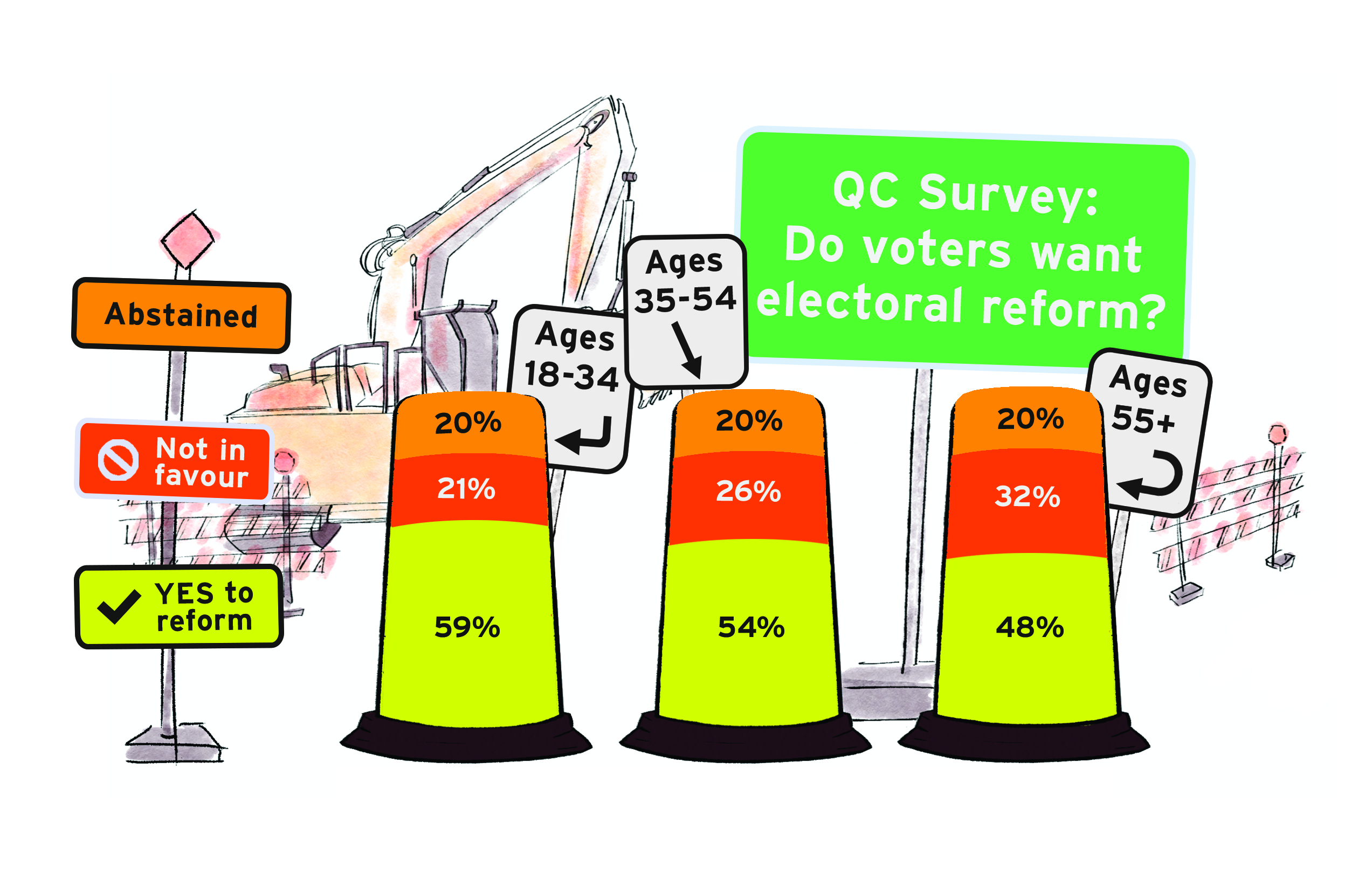Young adults are ready to see a change in the current voting system, poll suggests
Following Coalition Avenir Québec’s (CAQ) victory in the provincial election, Léger conducted a survey for the Journal de Montréal asking 1,040 Quebecers aged 18 and over if they were in favour of reforming the current voting system. The data was collected from Oct. 2 to 7.
First-past-the-post (FPTP) is the current voting system, defined as a “winner-takes-all” system where the candidate with the most votes wins. Even if they don’t receive more than 50 per cent of the votes, they become the Member of Parliament for that riding and gain a seat in the House of Commons. Fair Vote Canada, a group in favour of electoral reform, describes the FPTP voting system as “distorted.”
“It [FPTP] fosters stability in general because it tends to generate majority governments rather than minority or coalition governments, as opposed to say, proportional representation,” said Dr. Daniel Béland, director of the McGill Institute for the Study of Canada.
“At the same time, there are a lot of votes that are lost, because you vote in your riding for a candidate. And if the candidate loses your vote doesn’t have much of an impact,” Béland said.
Guy Lachapelle, political science professor at Concordia, Legault failed to deliver on his 2018 campaign promise to implement voting reform.
“And this argument that he didn’t have the time to implement it, I think I don’t buy it because he had created a committee right when he was elected and he signed the agreement,” said Lachapelle.
Legault also previously stated the issue of electoral reform was a matter concerning “a few intellectuals” and not the majority of Quebecers. However, Léger’s study revealed 53 per cent of Quebecers want the current electoral system to be reviewed due to the current misrepresentation as highlighted by Béland.
Results also show that 59 per cent of the respondents aged from 18 to 34 are in favour of electoral reform.
Mina Collin, a journalism and political science student at Concordia, shared her disappointment with the recent elections.
“What we’ve seen with the elections that just passed on Oct. 3 is that the system that we have is not representative especially,” said Collin.
The recent provincial elections enforce the idea of a “seat penalty” in the House of Commons whereby the popular vote doesn’t represent the number of seats elected.
The study also indicates the current electoral system causes a discrepancy between the percentage of votes that a political party obtains across Quebec and the number of seats it has.
“They had a majority of popular votes than for example the Liberal Party, but it’s the Liberal party that has more seats in the Assembly.”
The survey also shows that 59 per cent of voters aged 18-34 favour electoral reform.
Noah Martin, a political science student at Concordia, explained his theory for the low voter turnout of 66 per cent during this election.
“As a poli-sci student I will still vote, but if there were [a different] system where people’s voices can be heard and represented better, then I would think people would be more likely to vote,” suggested Martin.
Though, as the study suggests the majority of Quebecers wish for electoral reform, change is unlikely to happen in the next few years.
“I don’t think change will happen in Quebec, anytime soon, because the current government doesn’t want change to take place, because the system works for them. They got barely 40 per cent of the vote, and they got more than 70 per cent of the seats,” said Bélanger.
“It’s not going to happen as long as the CAQ is in power with the majority government,” he added.
